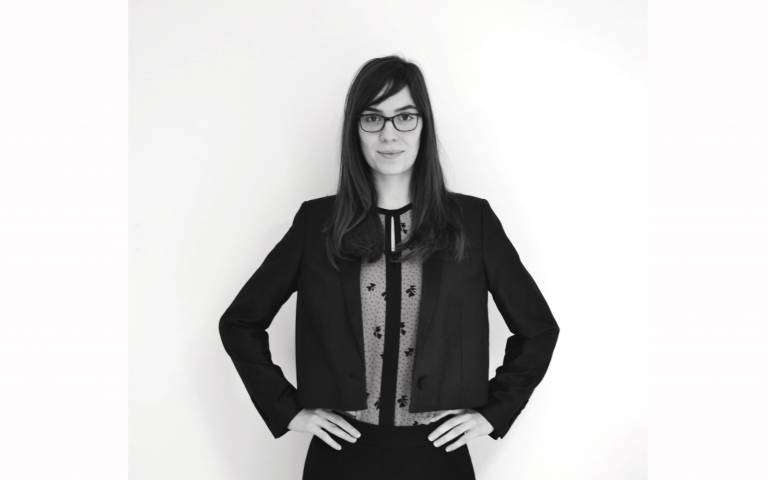Spotlight on PhD student Dimitra Kizlari
1 August 2018
We talked to Dimitra about her experience studying a PhD on 'Foreign Cultural Policy through the work of the Cultural Institutes' at UCL Institute for Sustainable Heritage

You're currently writing your thesis on 'Foreign Cultural Policy through the work of the Cultural Institutes' - Could you tell us a bit more about it?
"I work at the cross-section of cultural and foreign policy. In my research I am looking at how the National Institutes for Culture (this is the official term to describe organisations like the British Council, the Goethe Institut, etc.) are connected to their governments. Analysing the framework of cooperation with the state will allow scholars to understand how instrumentalism operates in foreign cultural policy, and legislators to inform their practices by taking into consideration institutional developments beyond their borders. The project adopts a comparative angle and juxtaposes six case studies from Europe (UK – British Council, Germany – Goethe Institut, France- Institut français, Sweden – Swedish Institute, Spain – Instituto Cervantes and Greece – Hellenic Foundation for Culture) with the aim to come to an understanding of the European res gestae in cultural diplomacy. By monitoring how national policies are developing in the aforementioned cases and how EU institutions are unfolding their own strategies, the research hopes to unpack the complex mechanics of cultural diplomacy governance and reveal the cross-overs between national and European policies."
What has been the biggest challenge of your PhD?
"I am a qualitative researcher doing interviews with high-ranked policymakers. It has been really difficult for me to grasp the attention of these people and arrange interviews with them. On paper, I am considered a self-funded student, which means I have no partners to whom I can contact to start building a network. As a researcher working with human subjects you therefore need to be prepared for a great number of rejections, be resourceful, and come up with an alternative approach."
What has been your biggest success of your PhD?
"Soon after I published my first research article, we were contacted to present our findings at a European knowledge-sharing workshop, which gathered senior policymakers in the field of cultural diplomacy. That opportunity eventually offered me a way in and I got more business cards than I could dream of to hold interviews."
What led you into studying this area of research?
"When I started working on my PhD, I had a slightly different topic in mind. The policy developments on a European level were sweeping studies, recommendations and MoUs, all pointing to a common strategy on culture in external relations were released in the course of one year. It didn’t take long to realise that there was strategic space for me to situate anew my research question."
Could you tell us about your background before starting joining UCL Institute for Sustainable Heritage?
"Before joining UCL ISH, I worked at the UNESCO Chair on Human Rights, Democracy and Peace in Greece, coordinating the European Master’s programme on Human Rights. I have also worked for the Imperial War Museums (Churchill War Rooms and HMS Belfast) as an Exhibitions Assistant and did my fair share of excavations as a trainee archaeologist.
I have a BA in Archaeology and Art History from the Aristotle University of Thessaloniki, Greece. I completed my Master’s degree on Museum Studies at the School of Architecture at the same institution. In 2015, I received two scholarships to undertake doctoral research at University College London."
We'd like to thank Dimitra for sharing her experience with us and wish her all the best with her thesis.
Further information
Thesis Title: Foreign Cultural Policy through the work of the Cultural Institutes
Supervisors: Dr Kalliopi Fouseki, Prof May Cassar
Funding bodies: Alexander S. Onassis Public Benefit Foundation, A.G. Leventis Foundation
Publications: Kizlari D., Fouseki, K., 2018. The Mechanics of Cultural Diplomacy:
A Comparative Case Study Analysis from the European Context, The Journal of Arts Management, Law, and Society, 48(2), pp.133-147.
Kizlari, D., Fouseki, K., (forthcoming Aug 2018). Treating resistance as data in qualitative interviews, The Qualitative Report.
 Close
Close

